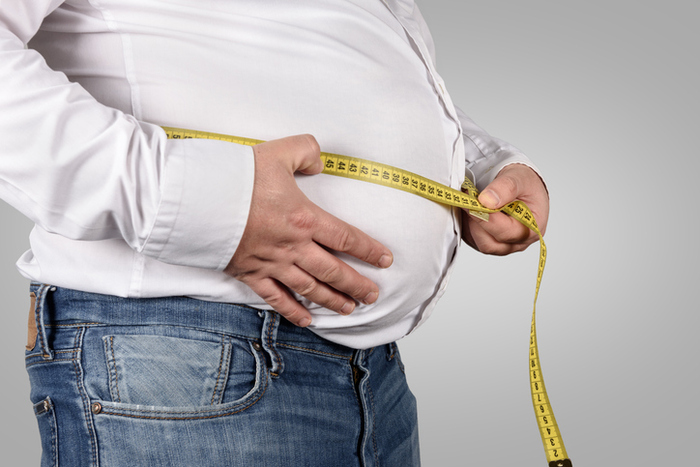The prevalence of overweight and obesity in the adult population is 53.6% in Spain.
In the child and adolescent population, the most recent figures estimate that 33.4% are overweight.
If tobacco was considered the main epidemic of the 20th century, the WHO has designated obesity (COVID-19 aside) as "the invisible pandemic of the 21st century".
Both risk factors share a lot.
For example, an industry that produces and distributes a wide range of unhealthy products, be they cigarettes or ultra-processed products, at very affordable prices.
In the case of food, it is not about the entire industry, but it is about cases such as certain business groups, behind products such as Iqos, but also Oreo cookies or Óscar Mayer sausages.
Advertising strategies are also similar.
The campaigns are based on increasing the attractiveness of these products, increasing their acceptance, and trying to postpone any type of regulation.
They also do not forget to create confusion about the health implications of their products.
Hence, many food marketing strategies are reminiscent of those designed to sell more and more cigarettes.
If history repeats itself, let's learn from it
In 2005, Spain signed and ratified the framework agreement of the World Health Organization for the control of smoking.
This included a plan of measures that was presented under the acronym MPOWER: M for monitoring (monitor) tobacco consumption;
P to protect (protect) from smoke;
Or for offering (offer) help to quit smoking;
W for warn of damage;
E for enforcing advertising bans;
and R for raising tobacco taxes.
Under this framework, two laws were approved in our country, in 2005 and in 2010, which have promoted important advances in the protection of the population against tobacco.
Although the scientific community has been advocating for this type of policy for years, the interventions continue to focus on individual responsibility.
Thus, it is preferred to opt for ineffective measures, focused on nutritional education, or on voluntary self-regulation agreements.
In part, as happened with tobacco, due to the corporate capture of some key players, from which neither professionals nor researchers in the field of public health are spared.
What is proposed?
Experts advocate intervening in five areas: 1) limit advertising, 2) regulate supply, 3) reduce demand, 4) improve front-end labeling, and 5) reformulate agreements with industry.
The objectives of limiting advertising are to decrease sales and the social acceptance of the products.
As with electronic cigarettes, most of the ultra-processed campaigns are directed at children and adolescents.
In our country, tobacco advertising and promotion are generally prohibited, with some exceptions at points of sale (eg tobacconists).
The Royal Decree on the regulation of food and beverage advertising aimed at minors, presented in October 2021, has yet to enter into force.
And it seems that he has the Ministry of Agriculture against him.
Access can also be regulated and thus reduce consumption.
For example, prohibiting the purchase of certain products by minors, or limiting the points of sale.
In this sense, many countries have already banned vending
machines
inside schools.
In Spain, the 2010 Consensus Document on Food in Educational Centers is voluntary and has very little application, almost non-existent.
An example of the ineffectiveness of self-regulation defended by Minister Planas.
Declaring certain spaces smoke-free was one of the biggest milestones in smoking control.
In the same way, it is time to propose that educational and health centers be places where the offer of menus, pastries, or sugary drinks are regulated.
Another of the most effective interventions to reduce tobacco consumption was raising the price through taxes.
These types of fiscal policies can also reduce the demand for unhealthy products.
In Catalonia, despite resistance from the industry, a tax on sugary drinks was introduced.
Their recent evaluation has shown that it works.
On the contrary, there is no data showing a negative impact on the economy or the labor market.
Some of these measures have been included in the National Strategic Plan for the Reduction of Childhood Obesity, presented last June as a road map to be followed in our country until 2030. Hopefully it will not remain a dead letter.
NUTRITION WITH SCIENCE
It is a section on nutrition based on scientific evidence and the knowledge contrasted by specialists.
Eating is much more than a pleasure and a necessity: diet and eating habits are right now the public health factor that can most help us prevent numerous diseases, from many types of cancer to diabetes.
A team of dieticians-nutritionists will help us to better understand the importance of food and to demolish, thanks to science, the myths that lead us to eat badly.
You can follow
EL PAÍS Salud y Bienestar
on
,
and
.

/cloudfront-eu-central-1.images.arcpublishing.com/prisa/LQIRGJMY2JGPXG7AQL5ZUI24VA.jpg)
/cloudfront-eu-central-1.images.arcpublishing.com/prisa/MUZAD6ZH7FE53M2E2YXOBV5XHU.jpg)

/cloudfront-eu-central-1.images.arcpublishing.com/prisa/JH6CB54NDYS2LXHYMZABZ5MCUI.jpg)


/cloudfront-eu-central-1.images.arcpublishing.com/prisa/RDU33EMH6NBSHNKREMLJH4TGFQ.jpg)

/cloudfront-eu-central-1.images.arcpublishing.com/prisa/USPGW4YAYJFFPIEU4G5GZEUJ4Q.jpg)